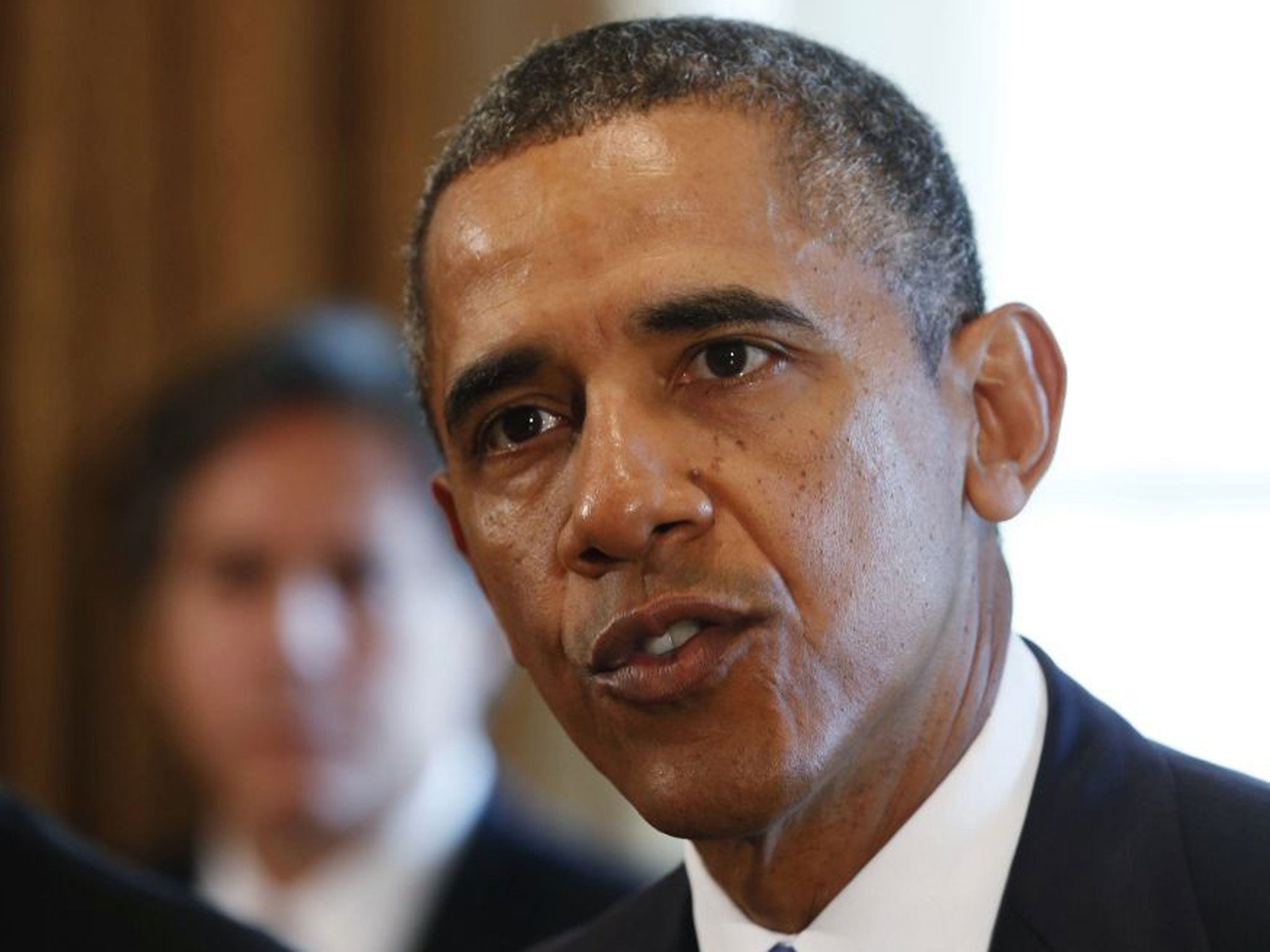Syria crisis: First CIA-trained rebel unit about to join fighting against Assad regime, says President Obama
In efforts to assure Congress – and Senator John McCain – that action on Syria will be more than just symbolic, Barack Obama says US efforts to support rebels are now in full swing

Your support helps us to tell the story
From reproductive rights to climate change to Big Tech, The Independent is on the ground when the story is developing. Whether it's investigating the financials of Elon Musk's pro-Trump PAC or producing our latest documentary, 'The A Word', which shines a light on the American women fighting for reproductive rights, we know how important it is to parse out the facts from the messaging.
At such a critical moment in US history, we need reporters on the ground. Your donation allows us to keep sending journalists to speak to both sides of the story.
The Independent is trusted by Americans across the entire political spectrum. And unlike many other quality news outlets, we choose not to lock Americans out of our reporting and analysis with paywalls. We believe quality journalism should be available to everyone, paid for by those who can afford it.
Your support makes all the difference.The first Syrian rebels to be trained by a CIA programme in Jordan are sneaking into the warzone and ready to strike back at the Assad regime, US President Barack Obama has reportedly said.
In his efforts to secure the support of Republican Senator John McCain in a crucial upcoming Congress vote on military action, the president indicated that the covert operation to bolster rebels’ chances on the ground was about to pay dividends, according to the New York Times.
In a meeting at the White House lasting an hour yesterday, Mr Obama and Mr McCain appeared united in their agreement that any action on Syria needed to go beyond the superficial, and the president has since said he wants to “degrade Assad’s capabilities”.
The first cell of 50 rebels trained and armed by the CIA, reportedly in Jordan, has begun to cross over into enemy lines.
While an airstrike could include aircraft, artillery and missile attacks, the failed candidate in the 2008 US presidential elections is among many in his political party who feel that the only way to really impact on the regime’s military capabilities is to arm the rebels.
Indeed, the Wall Street Journal yesterday reported that Mr McCain had said it was “shameful” that the US had previously – three months ago – promised arms for the opposition, only to fail to deliver.
Following the reassurances offered yesterday, Mr Obama has now won the conditional support of two of his fiercest foreign policy critics, with fellow Republican Senator Lindsey Graham joining Mr McCain in saying he was prepared to vote in favour of the authorisation the president seeks.
Mr McCain added that a congressional vote against the administration’s request “would be catastrophic in its consequences” for US credibility abroad.
And Mr Graham said: “There will never be a political settlement in Syria as long as Assad is winning.”
In a statement to Congressional leaders today, the president said he was confident that Congress would vote in favour of US military action in Syria and confirmed there exists a broader plan to help rebels defeat President Assad's forces.
“What we are envisioning is something limited. It is something proportional. It will degrade Assad's capabilities,” Mr Obama said.
“At the same time we have a broader strategy that will allow us to upgrade the capabilities of the opposition,” he said.
The president also reiterated his “high confidence” that the Syrian government used chemical weapons against its own people, and added that it posed a serious national security threat to the US and to the whole Middle East region.
Repeating the key argument that his administration has made in trying to win over Congress, Mr Obama said that not holding Mr Assad accountable would send the dangerous message to the world that international red lines on issues like nuclear proliferation and the use of weapons of mass destruction had little meaning.
“We are going to be asking for hearings and a prompt vote,” he said. “I'm very appreciative that everybody here has already begun to schedule hearings and intends to take a vote as soon as all of Congress comes back early next week.”
Join our commenting forum
Join thought-provoking conversations, follow other Independent readers and see their replies
Comments